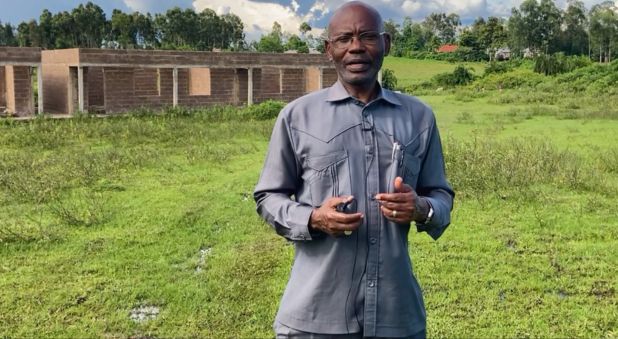Genital mutilation and child marriage awaits many girls as they become teenagers in Africa, but a second Tanzanian diocese has begun to lift the status of teenage girls through Christian education – with strong support from Sydney Anglicans.
“Girls are in a very precarious, very challenging situation in much of Africa,” says Bishop Mwita Akiri, who leads the Tarime Diocese east of Lake Victoria and west of the Serengeti. “If you have two children, one is a boy, one is a girl, parents are likely to offer opportunity to the boy.”
Dr Akiri says the culture is changing, but change needs to happen faster. “Where I come from, there is a crude and old practice of female gender mutilation. The girls get circumcised by the time they finish seven years of primary school [and] the next thing for them is marriage. So, if we create opportunity for them for secondary education, it means they're there for another four years, which gets them to adult age.
Hopefully they can go to high school, then university, but even if they didn't [pursue tertiary education] at least the churches contribute to getting them to adult age and then they can pursue other avenues for the future.”
Giving a future to girls and young women is why the long-time CMS missionary from Sydney, the Rev Canon Helen Hoskins, pioneered the establishment of female secondary schools in the neighbouring Mara Diocese. Bunda Girls’ Secondary School opened in 2014 with help from the Archbishop of Sydney’s Anglican Aid. Shalom School, a pre- and primary school supported by Anglican Aid with funds from a private foundation, opened in 2018.
Dr Akiri spoke at the Anglican Aid conference at Moore College in August, which also heard an update about the work of the schools in Mara (see inset). Tarime Diocese has drawn inspiration from Mara, and is now planning its own education outreach.
There is already a preschool, which Dr Akiri says gives children “a better environment, quality education when they're still younger so that they can begin to see the light, see the opportunities, and be nurtured in Christian faith while they're also learning and starting a journey towards their future”. But the urgent need, he says, is to begin a girls’ secondary school next year.
“That is actually the project I hope to finish before I retire. I need to get the girls there to start the education in January 2025.”
At the moment, the school is a cluster of partly finished buildings. “We still need money because these buildings haven't got windows, haven't got doors, haven't got the tiling,” he explains.
“We have to connect power from the national grid, the national electric supply to the school. We have to do the fencing for the girls so that they can be secure. So these are things which still require money and, with my retirement just around the corner, I need all the heavens and all the angels here in Sydney to pray with me to make this a reality.”






















